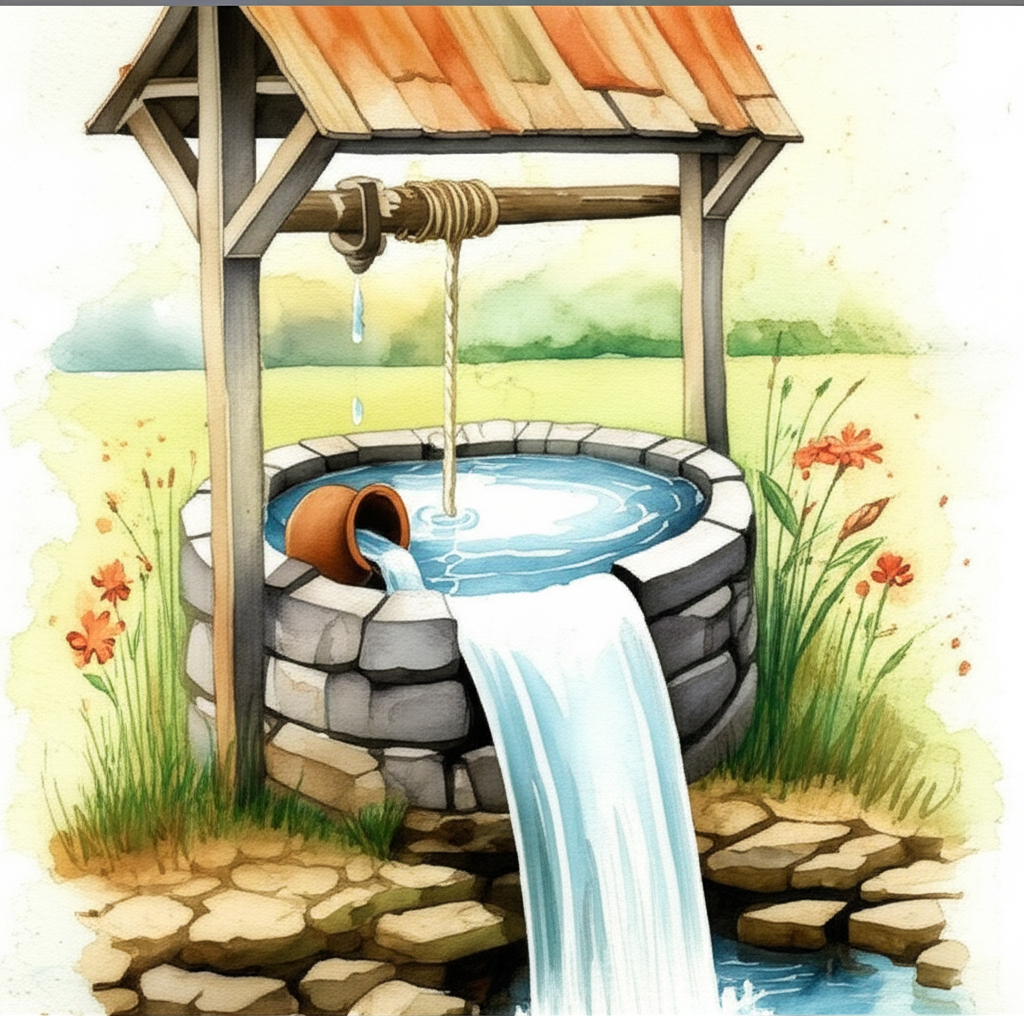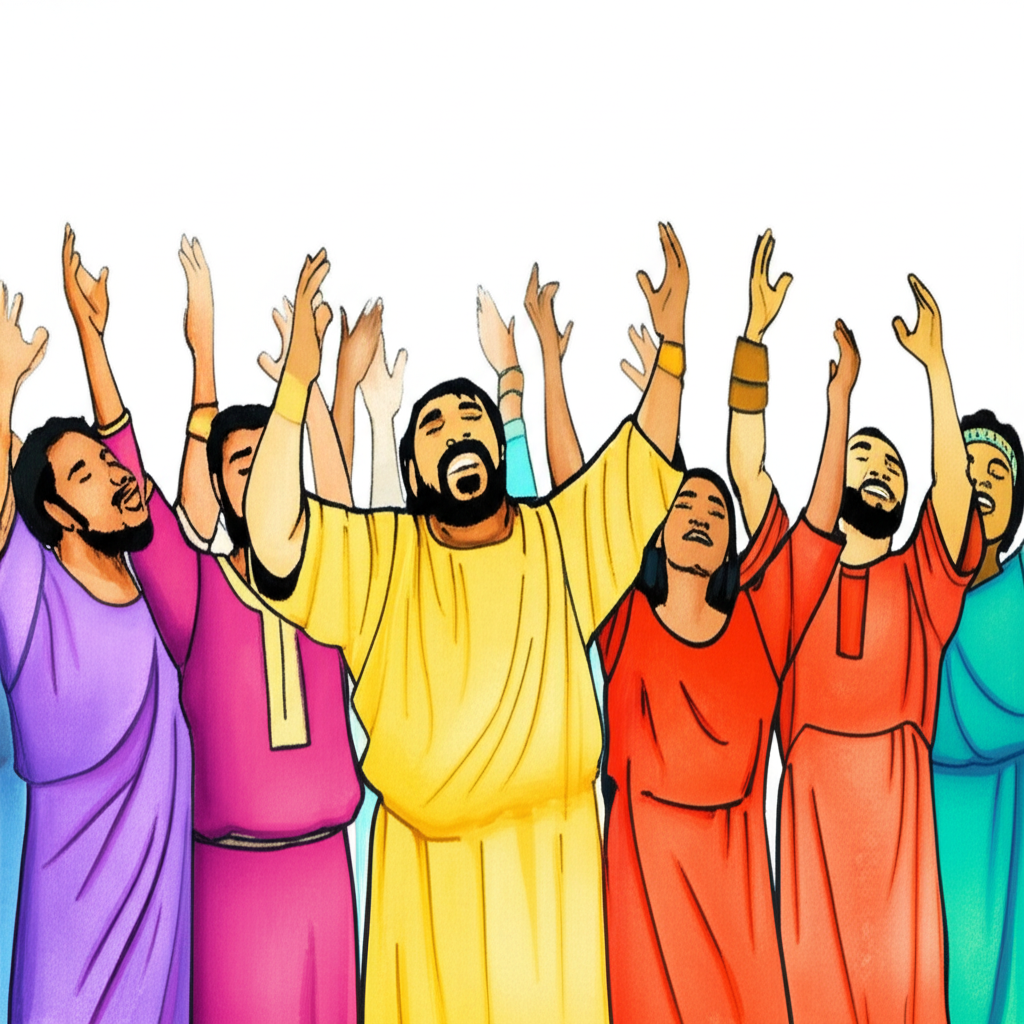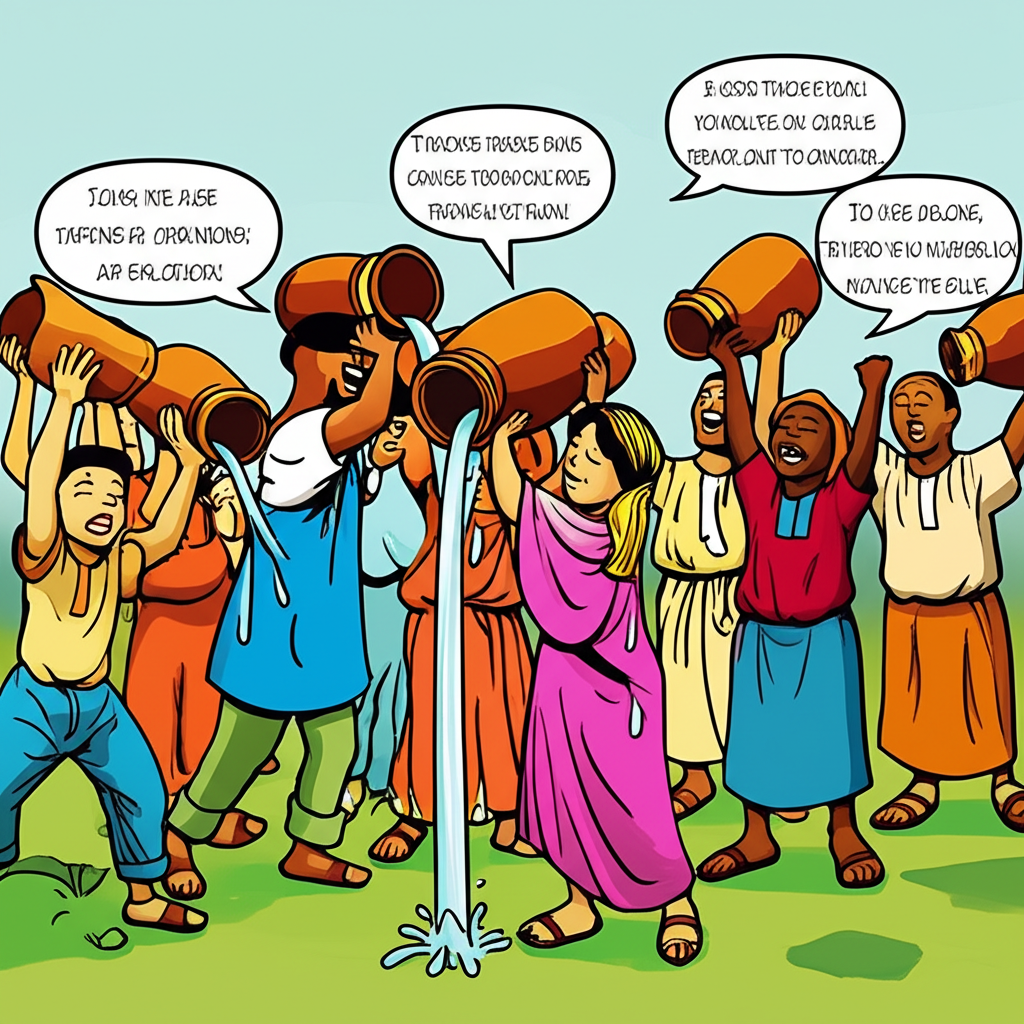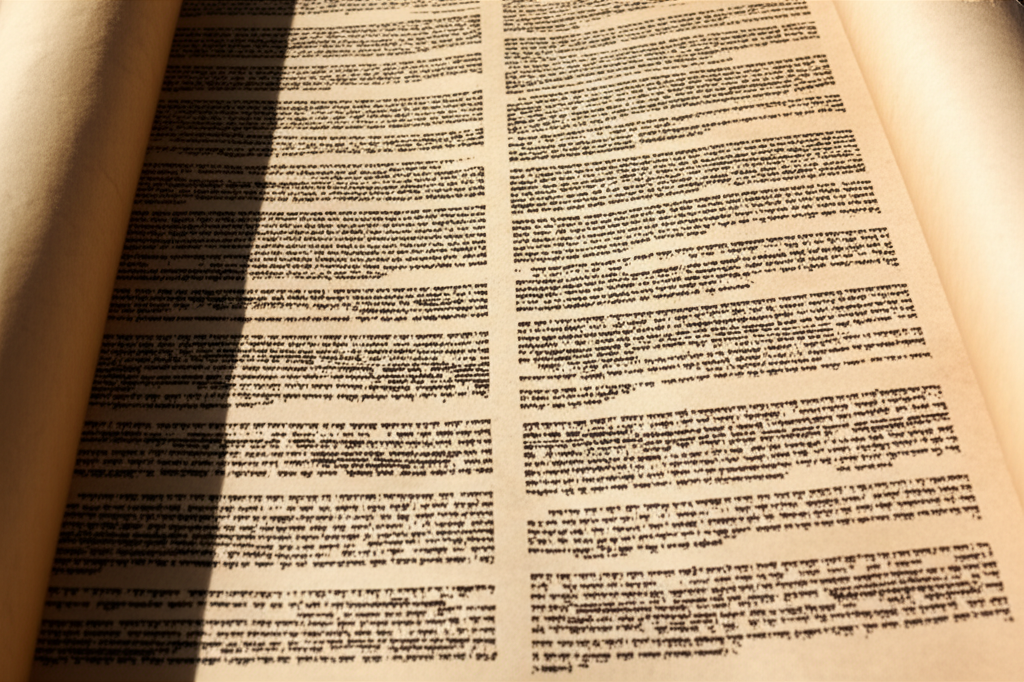Isaiah 12 meaning explained in AI Summary
Isaiah 12 is a short but powerful chapter, a hymn of praise and thanksgiving for God's salvation. It can be summarized in these key themes:
1. From Anger to Comfort (verses 1-2):
- The chapter begins by acknowledging God's past anger towards His people for their sins.
- However, it quickly shifts to celebrate God's comfort and forgiveness.
- The people recognize that God's anger has turned away, and He is now their salvation.
2. Joyful Trust in the Lord (verses 2-3):
- The prophet, on behalf of the people, expresses complete trust and confidence in the Lord.
- God is described as their strength and song, highlighting His power and the joy He brings.
- The imagery of "drawing water from the wells of salvation" symbolizes the abundant blessings and life found in God.
3. Proclamation and Praise (verses 4-6):
- The people are called to proclaim God's greatness and give thanks to Him.
- They are to declare His wondrous deeds among the nations, emphasizing His universal salvation.
- The chapter culminates in a joyous shout of praise to the Lord, the Holy One of Israel, who dwells among His people.
Overall Message:
Isaiah 12 is a song of redemption and hope. It reminds us that even after times of judgment and hardship, God's love and forgiveness are always available. It encourages us to respond to His grace with joyful praise and to share the good news of His salvation with others.
Isaiah 12 bible study ai commentary
Isaiah 12 is a short, powerful hymn of thanksgiving and praise, functioning as the joyful response to the promise of the Messiah and the restoration of Israel described in the preceding chapters (especially Isaiah 11). It is a prophetic song that will be sung by the redeemed remnant "in that day"—the future Messianic era. This psalm within a prophecy celebrates the end of divine wrath and the dawning of an age defined by God's salvation, presence, and unending joy.
Isaiah 12 Context
This chapter is set after the prophetic announcements of severe judgment on Israel and the nations, culminating in the promise of a righteous King from the "stump of Jesse" (Isaiah 11:1) who will usher in a period of universal peace and knowledge of God. The original 8th-century BC audience, facing the imminent threat of the Assyrian empire, would have heard this song as a distant but certain hope, a guarantee that God’s plan was not ultimate destruction but glorious redemption. The chapter forms a literary inclusio, bookending the oracles of judgment (Isa 1-11) with a note of pure worship, anticipating the focus on God's global sovereignty in the next section.
Isaiah 12:1
You will say in that day: “I will give thanks to you, O LORD, for though you were angry with me, your anger turned away, that you might comfort me.”
In-depth-analysis
- "In that day": A crucial eschatological phrase in the prophets, signaling the future time of God’s ultimate intervention—the Day of the Lord, which includes both judgment and salvation. It points to the specific time when the Messianic kingdom is established.
- "You will say": The song is a prophecy of future worship. God is not just predicting events but the very words of praise His people will offer.
- From "I" to "You": The song is profoundly personal at its start. It's an individual testimony ("I will give thanks") that will be spoken corporately.
- Anger and Comfort: It acknowledges a past period of justified divine anger (the exile and tribulation). The turning of this anger is not a change in God's character but a completion of His disciplinary purpose. Wrath is a past event; comfort is the new, eternal reality. The comfort comes because the wrath has been satisfied and turned away.
Bible references
- Ps 30:5: "For his anger is but for a moment, and his favor is for a lifetime..." (The transience of disciplinary anger vs. enduring favor).
- Isa 54:8: "In an overflowing of anger for a moment I hid my face from you, but with everlasting love I will have compassion on you..." (God explaining the nature of His past anger and future compassion).
- Lam 3:31-32: "For the Lord will not cast off forever, but, though he cause grief, he will have compassion according to the abundance of his steadfast love." (The purpose of God's grief-causing discipline).
- Rev 7:17: "...and God will wipe away every tear from their eyes." (The ultimate comfort following tribulation).
Cross references
2 Cor 1:3-4 (God of all comfort), Hos 14:4 (I will heal their apostasy), Mic 7:18 (who is a God like you, pardoning iniquity?), Zep 3:14-15 (The LORD has taken away the judgments against you).
Isaiah 12:2
“Behold, God is my salvation; I will trust, and will not be afraid; for the LORD GOD is my strength and my song, and he has become my salvation.”
In-depth-analysis
- Behold! (Hinne-El): A call for attention. It marks a foundational declaration of faith.
- God is my salvation (El yeshu'ati): The Hebrew word for "salvation" is Yeshu'ah (יְשׁוּעָה). This is the thematic and theological heart of the chapter. The statement is not just that God brings salvation, but that He is salvation itself. This is profoundly linked to the name of Jesus, Yeshua (יֵשׁוּעַ), which means "Yahweh is Salvation."
- I will trust, and not be afraid: True trust in God as salvation directly counteracts fear. This trust is not blind; it is based on the revealed character and actions of God.
- Strength and Song: This phrase is a direct quotation from the Song of Moses after the crossing of the Red Sea. By using this language, Isaiah links the future, final redemption to the foundational redemptive act of Israel's history—the Exodus. The future salvation will be an Exodus-like event, but on a grander, more permanent scale.
- "The LORD GOD" (Yah Yahweh): The doubling of the divine name (Yah) alongside Yahweh is rare and emphasizes God’s supreme power and eternal nature.
Bible references
- Ex 15:2: "The LORD is my strength and my song, and he has become my salvation..." (A direct quote, linking future redemption to the first Exodus).
- Ps 27:1: "The LORD is my light and my salvation; whom shall I fear? The LORD is the stronghold of my life; of whom shall I be afraid?" (The direct connection between God as salvation and the absence of fear).
- Hab 3:18: "...yet I will rejoice in the LORD; I will take joy in the God of my salvation." (Joy in God as salvation, even amid collapse).
- Jn 1:29: "Behold, the Lamb of God, who takes away the sin of the world!" (The ultimate declaration of God becoming our salvation in the person of Jesus).
Cross references
Ps 118:14 (another quote of Ex 15:2), Eph 2:8-9 (saved by grace), Phil 4:13 (I can do all things through him), Heb 13:6 (The Lord is my helper; I will not fear).
Isaiah 12:3
With joy you will draw water from the wells of salvation.
In-depth-analysis
- Joy and Water: This powerful metaphor presents salvation not as a static, one-time event but as an inexhaustible, life-giving spring. Water in the arid Middle East was a potent symbol of life, blessing, and refreshment. Joy is the bucket with which this water is drawn.
- Wells of Salvation (ma'yene ha-yeshu'ah): The source is not singular but plural ("wells"), suggesting the abundant and multifaceted nature of God’s salvation—forgiveness, regeneration, reconciliation, peace, eternal life.
- Drawing Water: This is an active process. The blessings of salvation are to be actively and joyfully received and experienced.
Polemics
This verse has a rich context in the Jewish festival of Sukkot (Feast of Tabernacles). During the Second Temple period, a joyful ceremony called the Water Libation (Simchat Beit HaShoeivah) was performed, where a priest would draw water from the Pool of Siloam and pour it on the altar, accompanied by singing and dancing. This verse was central to the ceremony. It is precisely during this festival that Jesus stands up and makes his profound declaration in John 7, directly connecting himself to this verse's imagery.
Bible references
- Jn 7:37-38: "On the last day of the feast... Jesus stood up and cried out, 'If anyone thirsts, let him come to me and drink. Whoever believes in me...‘Out of his heart will flow rivers of living water.’" (Jesus fulfilling the imagery of Isaiah 12:3 during the very festival that celebrated it).
- Jn 4:14: "but whoever drinks of the water that I will give him will never be thirsty again. The water that I will give him will become in him a spring of water welling up to eternal life." (Jesus as the source of living water).
- Rev 21:6: "To the thirsty I will give from the spring of the water of life without payment." (The eschatological fulfillment of this promise).
- Rev 22:1: "Then the angel showed me the river of the water of life, bright as crystal, flowing from the throne of God and of the Lamb." (The ultimate source of the wells of salvation).
Cross references
Ps 36:9 (in your light do we see light), Isa 55:1 ("Come, everyone who thirsts, come to the waters"), Zech 13:1 (a fountain opened for sin), Rev 22:17 (let the one who is thirsty come).
Isaiah 12:4-5
4 And you will say in that day: “Give thanks to the LORD, call upon his name, make known his deeds among the peoples, proclaim that his name is exalted.5 “Sing praises to the LORD, for he has done gloriously; let this be known in all the earth.
In-depth-analysis
- Shift from Personal to Public: The focus moves from the personal testimony of v. 1-3 to a corporate, missional command. The personal experience of salvation ("my salvation") must lead to global proclamation.
- Fourfold Mission: Verse 4 contains four imperatives that define the response to salvation:
- Give thanks: The core of worship.
- Call upon his name: Invoke Him in prayer and declare His character.
- Make known his deeds: Become a storyteller of God's redemptive acts.
- Proclaim his name is exalted: Declare His supreme worth above all rivals.
- Done Gloriously (ge'ut): This word implies majesty and triumphant splendor. God's salvation is not a quiet affair but a magnificent, world-altering achievement.
- All the earth: The scope of this praise is universal. The salvation of Israel is intended to result in the witness to all nations, a key theme throughout Isaiah.
Bible references
- Ps 105:1: "Oh give thanks to the LORD; call upon his name; make known his deeds among the peoples!" (An almost identical command, showing this is a standard tenet of Israel's worship).
- 1 Chr 16:8-9: "Oh give thanks to the LORD; call upon his name; make known his deeds among the peoples! Sing to him, sing praises to him..." (Another strong parallel from the dedication of the Ark).
- Mt 28:19: "Go therefore and make disciples of all nations..." (The Great Commission as the New Testament fulfillment of this missional impulse).
- Acts 1:8: "...and you will be my witnesses in Jerusalem and in all Judea and Samaria, and to the end of the earth." (The apostolic mission to proclaim Christ's deeds).
Cross references
Ps 9:11 (declare his deeds), Ps 66:2 (sing the glory of his name), Ps 96:3 (declare his glory), Isa 49:6 (a light for the nations), Phil 2:9-11 (God has highly exalted him).
Isaiah 12:6
Shout, and sing for joy, O inhabitant of Zion, for great in your midst is the Holy One of Israel.”
In-depth-analysis
- Shout, and sing for joy: The worship reaches its crescendo. The Hebrew suggests a piercing, ringing cry of exultation.
- Inhabitant of Zion: While Zion refers to Jerusalem, it functions here as a term for the covenant people of God, the community of the redeemed.
- The Reason for Joy: The ultimate reason for this exuberant praise is not just what God has done, but who He is and where He is: great in your midst.
- Great in your midst: This is the climax. The supreme God is not distant but immanent, dwelling among His people. This fulfills the promise of Immanuel ("God with us," Isa 7:14) in its fullest sense. His greatness is not an intimidating, far-off reality but a near, personal, and resident glory.
- Holy One of Israel: Isaiah's favorite title for God (used over 25 times). It emphasizes God's transcendent otherness and moral perfection, making His intimate dwelling ("in your midst") all the more profound and glorious.
Bible references
- Zep 3:14-17: "Sing aloud, O daughter of Zion... The King of Israel, the LORD, is in your midst... The LORD your God is in your midst, a mighty one who will save..." (The clearest and most direct parallel in the OT).
- Zech 2:10: "Sing and rejoice, O daughter of Zion, for behold, I am coming and I will dwell in your midst, declares the LORD." (The same promise of God's imminent, joyous dwelling).
- Rev 21:3: "And I heard a loud voice from the throne saying, “Behold, the dwelling place of God is with man. He will dwell with them, and they will be his people, and God himself will be with them as their God." (The ultimate New Testament fulfillment).
- Eze 48:35: "...And the name of the city from that day shall be, The LORD Is There." (The culmination of Ezekiel's vision of restoration).
Cross references
Ps 46:5 (God is in the midst of her), Dt 7:21 (Lord your God is in your midst), Joel 2:27 (I am in the midst of Israel).
Isaiah Chapter 12 Analysis
- Structure and Progression: The chapter moves beautifully from a personal song of salvation (v. 1-2) to a shared experience of joy (v. 3) and culminates in a corporate, missional call to global praise (v. 4-6). It mirrors the journey of a believer: from personal conversion to joyful community and outward witness.
- The Second Song of Moses: Isaiah 12 is deliberately patterned after Exodus 15. Both songs are sung after a miraculous deliverance through water (Red Sea / Wells of Salvation). Both celebrate God as "strength and song" and His having "become my salvation." Isaiah intentionally presents the final Messianic redemption as the ultimate "New Exodus."
- Salvation is a Person: The chapter’s central theme of Yeshu'ah (salvation) is a clear and powerful pointer to the Messiah, Yeshua (Jesus). The hymn is a celebration not just of a concept but of God Himself as salvation, a reality perfectly fulfilled in the person of Christ. One could say the song is, "Praise God for Jesus!"
- Immanuel Realized: The entire prophecy finds its foundation in the promise that God is "Immanuel - God with us" (Isa 7:14). Chapter 12 celebrates the ultimate fulfillment of this promise: "great in your midst is the Holy One of Israel." His presence is the reason for the joy.
Isaiah 12 Summary
Isaiah 12 is a prophetic song of praise to be sung by God's people in the Messianic Kingdom. It marks the transition from God's past, disciplinary anger to His eternal comfort. The hymn celebrates God Himself as salvation (Yeshua), who is a limitless source of joy ("wells of salvation"). This personal experience of God's redemptive power overflows into a global mission to proclaim His glorious deeds and exalted name, culminating in exuberant joy because God, the great and Holy One of Israel, will finally be dwelling in the very midst of His people.
Isaiah 12 AI Image Audio and Video









Isaiah chapter 12 kjv
- 1 And in that day thou shalt say, O LORD, I will praise thee: though thou wast angry with me, thine anger is turned away, and thou comfortedst me.
- 2 Behold, God is my salvation; I will trust, and not be afraid: for the LORD JEHOVAH is my strength and my song; he also is become my salvation.
- 3 Therefore with joy shall ye draw water out of the wells of salvation.
- 4 And in that day shall ye say, Praise the LORD, call upon his name, declare his doings among the people, make mention that his name is exalted.
- 5 Sing unto the LORD; for he hath done excellent things: this is known in all the earth.
- 6 Cry out and shout, thou inhabitant of Zion: for great is the Holy One of Israel in the midst of thee.
Isaiah chapter 12 nkjv
- 1 And in that day you will say: "O LORD, I will praise You; Though You were angry with me, Your anger is turned away, and You comfort me.
- 2 Behold, God is my salvation, I will trust and not be afraid; 'For YAH, the LORD, is my strength and song; He also has become my salvation.' "
- 3 Therefore with joy you will draw water From the wells of salvation.
- 4 And in that day you will say: "Praise the LORD, call upon His name; Declare His deeds among the peoples, Make mention that His name is exalted.
- 5 Sing to the LORD, For He has done excellent things; This is known in all the earth.
- 6 Cry out and shout, O inhabitant of Zion, For great is the Holy One of Israel in your midst!"
Isaiah chapter 12 niv
- 1 In that day you will say: "I will praise you, LORD. Although you were angry with me, your anger has turned away and you have comforted me.
- 2 Surely God is my salvation; I will trust and not be afraid. The LORD, the LORD himself, is my strength and my defense; he has become my salvation."
- 3 With joy you will draw water from the wells of salvation.
- 4 In that day you will say: "Give praise to the LORD, proclaim his name; make known among the nations what he has done, and proclaim that his name is exalted.
- 5 Sing to the LORD, for he has done glorious things; let this be known to all the world.
- 6 Shout aloud and sing for joy, people of Zion, for great is the Holy One of Israel among you."
Isaiah chapter 12 esv
- 1 You will say in that day: "I will give thanks to you, O LORD, for though you were angry with me, your anger turned away, that you might comfort me.
- 2 "Behold, God is my salvation; I will trust, and will not be afraid; for the LORD GOD is my strength and my song, and he has become my salvation."
- 3 With joy you will draw water from the wells of salvation.
- 4 And you will say in that day: "Give thanks to the LORD, call upon his name, make known his deeds among the peoples, proclaim that his name is exalted.
- 5 "Sing praises to the LORD, for he has done gloriously; let this be made known in all the earth.
- 6 Shout, and sing for joy, O inhabitant of Zion, for great in your midst is the Holy One of Israel."
Isaiah chapter 12 nlt
- 1 In that day you will sing:
"I will praise you, O LORD!
You were angry with me, but not any more.
Now you comfort me. - 2 See, God has come to save me.
I will trust in him and not be afraid.
The LORD GOD is my strength and my song;
he has given me victory." - 3 With joy you will drink deeply
from the fountain of salvation! - 4 In that wonderful day you will sing:
"Thank the LORD! Praise his name!
Tell the nations what he has done.
Let them know how mighty he is! - 5 Sing to the LORD, for he has done wonderful things.
Make known his praise around the world. - 6 Let all the people of Jerusalem shout his praise with joy!
For great is the Holy One of Israel who lives among you."
- Bible Book of Isaiah
- 1 The Wickedness of Judah
- 2 The Mountain of the Lord
- 3 Judgment on Judah and Jerusalem
- 4 The Branch of the Lord Glorified
- 5 The Vineyard of the Lord Destroyed
- 6 Isaiah's Vision of the Lord
- 7 Isaiah Sent to King Ahaz
- 8 The Coming Assyrian Invasion
- 9 For to Us a Child Is Born
- 10 Judgment on Arrogant Assyria
- 11 The Righteous Reign of the Branch
- 12 The Lord Is My Strength and My Song
- 13 The Judgment of Babylon
- 14 The Restoration of Jacob
- 15 An Oracle Concerning Moab
- 16 Send the lamb to the ruler of the land, from Sela, by way of the desert, to the
- 17 An Oracle Concerning Damascus
- 18 An Oracle Concerning Cush
- 19 An Oracle Concerning Egypt
- 20 A Sign Against Egypt and Cush
- 21 Fallen, Fallen Is Babylon
- 22 An Oracle Concerning Jerusalem
- 23 An Oracle Concerning Tyre and Sidon
- 24 Judgment on the Whole Earth
- 25 God Will Swallow Up Death Forever
- 26 You Keep Him in Perfect Peace
- 27 The Redemption of Israel
- 28 Judgment on Ephraim and Jerusalem
- 29 The Siege of Jerusalem
- 30 Do Not Go Down to Egypt
- 31 Woe to Those Who Go Down to Egypt
- 32 A King Will Reign in Righteousness
- 33 O Lord, Be Gracious to Us
- 34 Judgment on the Nations
- 35 The Ransomed Shall Return
- 36 Sennacherib Invades Judah
- 37 Hezekiah Seeks Isaiah's Help
- 38 Hezekiah's Sickness and Recovery
- 39 Envoys from Babylon
- 40 Comfort for God's People
- 41 Fear Not, for I Am with You
- 42 The Lord's Chosen Servant
- 43 Israel's Only Savior
- 44 Israel the Lord's Chosen
- 45 The great king Cyrus
- 46 The Idols of Babylon and the One True God
- 47 The Humiliation of Babylon
- 48 Israel Refined for God's Glory
- 49 The Servant of the Lord
- 50 Israel's Sin and the Servant's Obedience
- 51 The Lord's Comfort for Zion
- 52 The Lord's Coming Salvation
- 53 Who has believed our report
- 54 The Eternal Covenant of Peace
- 55 The Compassion of the Lord
- 56 Salvation for Foreigners
- 57 Israel's Futile Idolatry
- 58 True and False Fasting
- 59 Evil and Oppression
- 60 Arise Shine for your light has come
- 61 The Spirit of the Lord is upon me
- 62 Zion's Coming Salvation
- 63 The Lord's Day of Vengeance
- 64 Oh that you would rend the heavens and come down, that the mountains might
- 65 Judgment and Salvation
- 66 The Humble and Contrite in Spirit